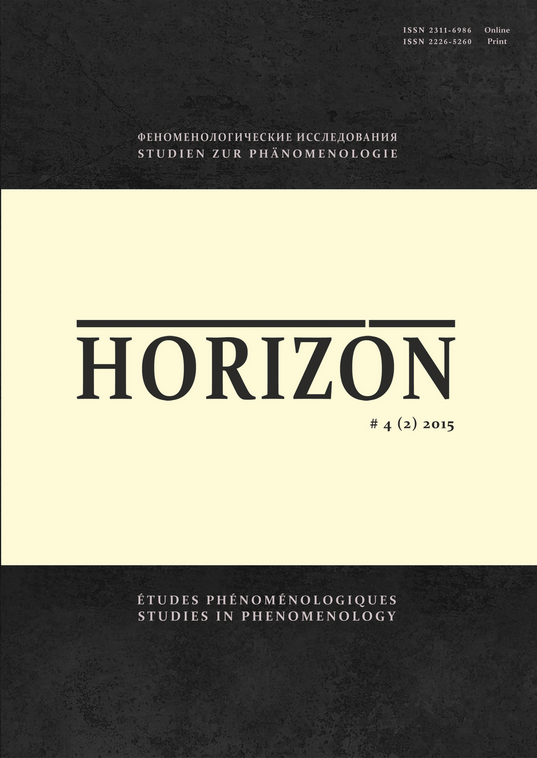ZUM SYSTEMATISCHEN ERBE DER KLASSISCHEN DEUTSCHEN
PHILOSOPHIE IN DER TRANSZENDENTALEN PHÄNOMENOLOGIE
(UNTER BESONDERER BERÜCKSICHTIGUNG
DES REALITÄTSBEGRIFFS)
ABOUT SYSTEMATIC HERITAGE OF THE CLASSICAL GERMAN PHILOSOPHY
IN TRANSCENDENTAL PHENOMENOLOGY (WITH EMPHASIS ON CONCEPT OF REALITY)
Author(s): Alexander SchnellSubject(s): German Idealism, Phenomenology
Published by: Издательство Санкт-Петербургского государственного университета
Keywords: Reality; transcendentalism; truth; ontology; mediation; Kant; Fichte; Schelling; Husserl
Summary/Abstract: In this paper, I focus on the link between Husserl and Classical German Philosophy on the concept ofreality. The aim of my study is this: explore the phenomenological concept of reality and strengthenthe phenomenological standpoint within the contemporary discussion about «realism». After tryingto outline a general characterization of «reality», I extract the core question of Kant’s approach of thisperspective, namely: how is it possible to legitimate the possibility of reality thanks to a priori forms ofunderstanding? The phenomenological answer is prepared by developing the very essence of Fichte’sand Schelling’s discussion on transcendental idealism, on the one hand, and a response to Meillassoux’scritique of «correlationism», on the other. The heart of my demonstration consists then in the attemptto show that the transcendental constitution of reality — that entails a «new ontology» (Levinas),characterized both by the «constitution of consciousness» and the «foundation of being» — leans onHusserl’s conception of truth, and especially on the link between the determination of reality and theapprehension of truth. Furthermore, it brings into play a mediation in which the real determinationsof the constituted being have themselves an effect on this transcendental constitution; and it implies thatthe legitimation of this mediation is based on a transcendental («reflexible») reduplication that makesthe possibilisation itself possible. Thus, the concept of reality contains a legitimation of necessity thatrecurs both to Schelling and to Fichte (whose influences on Husserl’s phenomenology are obviouslysystematical rather than historical).
Journal: Horizon. Феноменологические исследования
- Issue Year: 4/2015
- Issue No: 2
- Page Range: 10-24
- Page Count: 15
- Language: German

